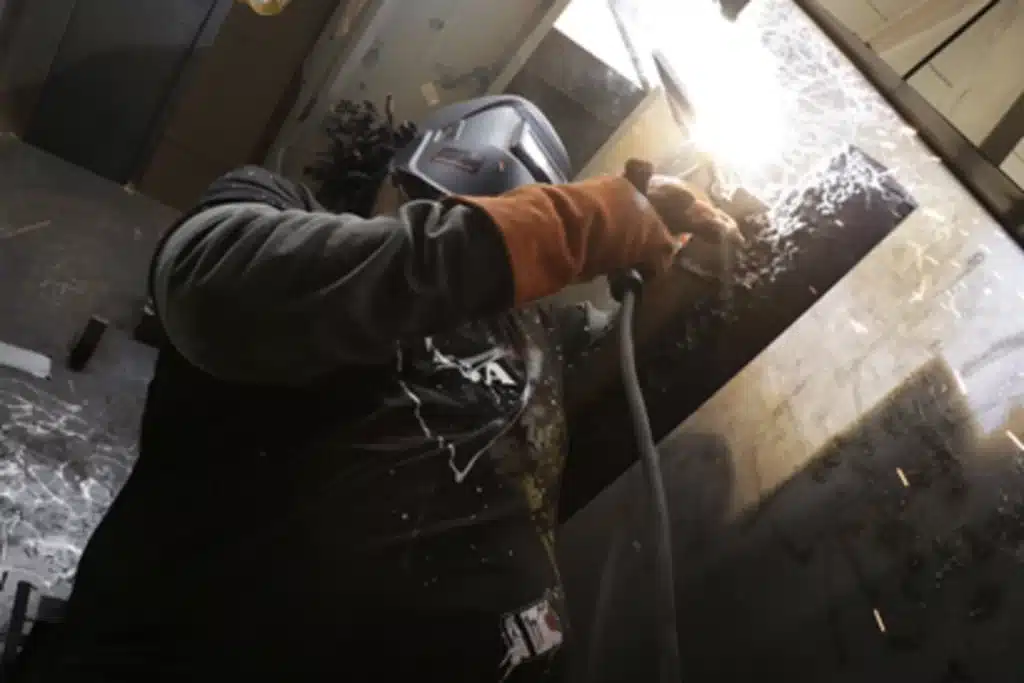Welding is a skilled trade that involves joining two or more metal pieces or thermoplastics through heat and pressure. Welders are essential for industries such as construction, manufacturing, and transportation. However, choosing the right welding program for your career goals can be challenging.
A welding class trains welding apprentices to become skilled welders. Welding is the procedure of joining metal pieces by melting and fusing them. It is essential in various industries, including construction, manufacturing, and automotive repair.
A welding program usually consists of classroom instruction and hands-on training in a workshop or lab. The curriculum typically covers welding safety, welding processes, welding techniques, blueprint reading, and welding codes and standards. Students also learn about different types of welding equipment and how to use them in welding class.
Welding programs may offer different levels of certification, such as a certificate of completion or an associate degree. These programs may also focus on specific types of welding, such as TIG welding, MIG welding, or stick welding. In addition, some welding programs may offer specialized training in pipe, sheet metal, or underwater welding.
The length of a welding training program can vary depending on the school and the level of certification offered. Some programs may last just a few weeks, while others may take several months or years to complete. Upon completion of a welding program, graduates may be eligible for entry-level welding jobs in various industries or may choose to pursue further certification or education in the field.

To find a welding program, identify your welding career goals. For example, if you want to work for a large corporation or start a welding business, answering these questions will help you narrow your options.
Accreditation is one of the most important factors when choosing a welding program. Accreditation is when an independent organization evaluates the quality of a welding work based on specific criteria, such as curriculum, faculty, and facilities. Accreditation ensures the welding program meets industry standards and prepares students for the workforce.
There are two primary accrediting bodies for welding career programs in the United States: the American Welding Society (AWS) and the Accrediting Commission of Career Schools and Colleges (ACCSC). Therefore, when choosing a welding program, look for one accredited by one of these organizations.
The curriculum of welding work is another critical factor to consider. The curriculum should cover the essential welding techniques, such as GTAW (gas tungsten arc welding) and GMAW (gas metal arc welding). It should also include welding safety instructions, codes, and metallurgy.
Some welding training programs offer specialized training in areas such as pipeline or robotic welding. If you have a particular area of interest, look for a welding program that provides training.
Welding is a hands-on trade, so finding a welding program that offers plenty of hands-on training is essential. Look for a program with a well-equipped welding lab with various welding equipment, such as welding machines, welding torches, and welding electrodes. The welding lab should also have ample space for students to work and practice their welding skills.

The credentials of the welding program faculty are another essential factor to consider. The instructors with experience in the welding industry should have certifications from AWS or recognized organizations. The faculty should also be knowledgeable in the latest welding repair and manufacturing techniques.
Another essential factor to consider when choosing a welding program is job placement services. Look for a program with a track record of placing graduates in welding jobs. Some welding programs have partnerships with local employers, which can provide job opportunities for graduates. The welding course should also offer resume writing assistance, job search resources, and interview preparation.
The cost of a welding repair program is another essential factor to consider. Welding programs can range from a few thousand dollars to tens of thousands. Look for a program that fits your budget and provides good value. Consider tuition, fees, and welding supplies.
In conclusion, choosing the right welding program requires careful consideration of your career goals, researching available programs, checking the curriculum, certifications, program duration and cost, and visiting the welding school. By following these steps, you can choose a welding program that will prepare you for a rewarding career in welding.
Read More